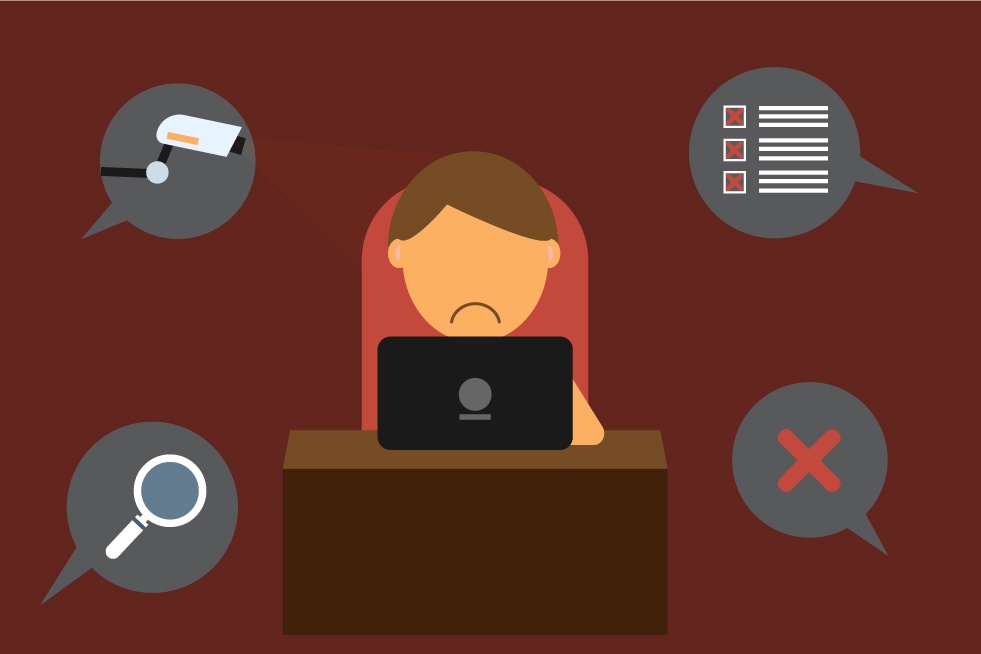By Ian Pearson

While a huge portion of the working population already worked as telecommuters (at least as part-time), for some people, a lockdown was a unique opportunity to try working from home. Now, a lot of firms are recalling these lockdown-telecommuters back to the office and some people have a hard time getting accustomed back to the way things were. Some will remain working from home for a prolonged period of time but still haven’t been accustomed to this way of things. Here are several micromanagement issues that you can resolve coming out of the lockdown.
1.Problem with trust
For a lot of entrepreneurs, there’s a massive trust issue when handling their staff in a virtual environment. A lot of managers believe that they can oversee their employees in person or that their very presence will make them more productive.
The truth is that this level of control is merely an illusion and a harmful one at that. On the one hand, you’re wasting your time and energy supervising your employees, looking over their shoulder but the results that you’re getting from this are dubious.
All you can do is keep them in the line of sight for a second or so but you have no idea what’s going on their screen 99% of the time that you’re not looking at them. Even when you do stand behind them and look at their screen what can you see? You see that they’re sending a corporate email… great. However, can you have a way of knowing whether this single email is something that they’ve been working on for the past two hours?
At the same time, you’re clearly showing them that you don’t trust them or even worse, that if you notice something that you don’t like (at any point) there will be repercussions. This makes them demotivated, less productive and even creates an environment with a higher level of employee abandonment.
2.Training and growth during lockdown
The next challenge that you’re facing is the process of training and development during the lockdown. Unnecessary physical contact is brought down to a minimum for an obvious reason. This means that the traditional method of training and development that you’ve used in the past may no longer be as effective.
Instead, you need to look for an effective online personal development course or courses to consider. Advantages of this are the availability of on-demand learning materials, a completely safe (COVID-19-free) learning environment and a sustainable future model.
Chances are that some enterprises won’t go back to how the things were in the past, even once the epidemiological situation is normal once again. At very best, some enterprises may adopt a hybrid working model. This means that some of your employees will still come to the office, while others may keep working from home. This way, you can make the training and development more uniform.
3.Personal burnout
Micromanagement takes so much time and energy and it causes more stress than it should. All of this takes place in a situation that is stressful as it is. Sure, a lot of people worry about their health and their jobs but you have other people’s jobs to worry about, as well. When an employee loses their job, they can always blame it on the entrepreneur or the economy. An entrepreneur, however, has a shorter list of potential factors to blame.
Overworking yourself while under this type of stress is never a good idea and by trying to micromanage everything things will only get worse. Whether other people are reliable enough to do their job even when no one’s looking is not your personal responsibility. That is unless you persuade yourself that it is.
4.Restricting their creativity
A philosophy professor once asked their students whether they know what will happen if they squeezed on the orange too hard. They replied that the orange juice will come out. He then asked why the orange juice and not some other juice type? They replied that it’s because that’s what’s inside of an orange. Things that come out under pressure are those same things that were inside all along.
If you keep all your employees performing menial tasks 24/7, you shouldn’t act surprised if their performance is fairly limited. The pressure that you keep putting on them by micromanaging and supervising them is not the type of pressure that will make them show you their best. This type of pressure comes from giving them more responsibility.
With increased responsibility and autonomy, you will not just unburden yourself but also give everyone a chance to prove themselves. This can be the type of intrinsic motivator that will allow your staff members to unleash their full potential.
5.Micromanagement is not scalable
Even if you are capable of telling everyone what to do all the time or keeping an eye out whether people are doing what you’ve told them, this won’t be the case forever. What happens when your own administrative responsibilities grow in volume? What happens when your staff increases in size? What happens when the level of task specialization outgrows your technical knowledge on the subject matter?
It’s more than clear that micromanagement is possible only up to a certain point. If that is the case, what’s the point of getting accustomed to it or relying on it too much. Instead, you should switch to something scalable and sustainable in the long run. This way, while you still have the time to micromanage, you can offer your guidance and assistance to those who need it. Such a thing will provide your staff with more reliability and portrays you as a caring leader.
In conclusion
In the end, the main reason why you shouldn’t micromanage everything is that there’s really no need for such a thing. You exhaust yourself without gaining as much as you think you’re gaining. Everyone’s under a lot of stress, so by trying to micromanage unnecessary tasks, you’ll put even more pressure on them. Instead, try relaxing a bit and start trusting your staff. Instead of trying to control them, try helping them assume control on their own.

 Bantter Blog
Bantter Blog